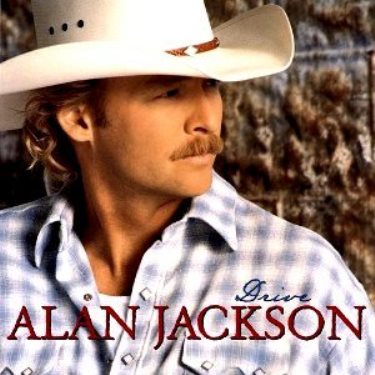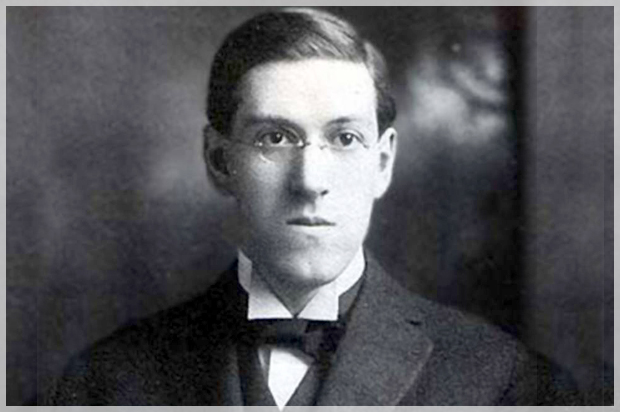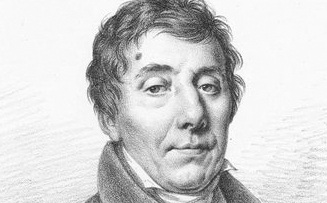What follows are programme notes for the “Conservative Song” segment of Radio Carpe Diem compiled by Luke Torrisi. The notes were produced for a recent broadcast, and form the basis of a live on-air discussion about conservative and traditionalist themes that can be inferred from items of popular music. Radio Carpe Diem is Australia’s only paleoconservative and traditionalist radio programme and can be accessed online or free to air at 88.9FM at 8:00pm to 10:00pm Mondays (Sydney, Australia). Readers’ comments are welcome here at SydneyTrads. Listeners are encouraged to tune in and engage in the discussion.
 Drive (for Daddy Gene)
Drive (for Daddy Gene)
This first thing to note about this song, is that it is Alan Jackson’s musical dedication to his own deceased father. In what is more than just a nostalgic reverie, we see an exposition by Jackson as to what it takes to be a good father of the Conservative disposition.
There is a lot to this song – it is very densely packed with references designed to make you think along traditional lines. If it were poetry (and to be frank, why shouldn’t we regard it as such?) one would regard the poet as introducing a brilliant conceit with the three reminiscences that he presents here: riding with his dad in his first boat, his father teaching him to drive and he in turn teaching his three daughters.
Like most songs these days, the video accompaniment conveys as much meaning as the lyrics do, and in some ways clear up any ambiguities. This song visually begins in an old bookshop as the soft but catchy country melody whispers in our ear like a favourite uncle at Christmas time. We are introduced to the “story” of the song by a group of children excitedly entering this very rustic and antique bookshop. They proceed straight to a book obviously well known to them, and the vision changes to a kind of “crayon animation” effect, where what is obviously real film, of real people is given very life-like and non-cartoon story book effect. The message is clear: the stories of our lives matter to the ones we leave behind.
If we pause here for a moment, the Conservative is already on alert. In this digital age when there seems to be an assault upon traditional essentials such as real books, the video sends a clear message that technology and innovation can’t replace everything (cf. I Still Like Bologna) and sometimes you need a child’s inquisitiveness to remind you of this. Immediately we know we are in for a message about the permanent things with a hint of Romanticism as the innocence of children clears away the cobwebs formed by life’s corrupting harshness.
The words of the song focus first and foremost upon an old boat. But what are we being told? We are being told the virtue of frugality, hard work and the importance between men, especially between father and son, of bonding by doing work with your hands. Along with this is the higher message of artisanship – the life whereby skills that make you both valuable to the common good and independent and self-resourceful are handed down from one generation to the next. The boat is second hand – it needs repairs. We are told that the father and son “put on a motor / Built out of love”. This is an interesting choice of words, because it means more than just love for the boat and the boat restoration project – but the sharing of love between father and son. It is valuable expression of the unique way in which men share love – it is distinctly masculine and not feminine – a refreshing discussion in an overly (and politically) feminised age.
This reference to respect for old things, avoidance of fads and trends and practice of frugality is particularly prominent in the third verse, where Jackson describes how he first learned to drive at a particularly young age (“I’d sit up in the seat and stretch my feet out to the pedals”) with his father. He describes how he learned to drive in an “old” truck that his “uncle bought new in ’64”. This rather biting line reminds us that things were once built to last and you could hand them down from one generation to the next because people had pride in their work. We are reminded here not just of the great days of the American automobile industry – when owning an American car was something certainly to be proud of – but of the modern world’s tendency for built in obsolescence.
Further, on a similar theme, there is another biting reference to the unnecessary complexity of today’s manufacturing: “Daddy got it right ‘cause the engine was smoking / A couple of burnt valves and he had it going.”. It isn’t a case of a modern vehicle where a microchip holds the secret as to whether the vehicle will ever work again, or worse, a unique part no longer made makes repair a redundant term. What we are told here is that we had a certain degree of independence- and with that freedom – when things were made to last and made so that we could comprehend them.
As a consequence to this, any attachments we developed to “things” were more spiritual attachments as opposed to material ones: we loved that old teacup because grandma drank out of it not because it was the latest brand fad, we loved that old car because that’s what we learned to drive in (as did our father) not because it was a symbol of our status or wealth. Best of all – we loved that old boat because we made it with our own hands.
Jackson is telling us more here than the value of keeping old stuff, he is teaching us about character and how it is made. The experience of driving the old boat is very special to the young boy Jackson (“I can’t replace the way it made me feel”), he sings “But I was king of the ocean / When daddy let me drive”. This is a song about independence, trust, confidence and the important role that fathers have in producing these things in a young man. What is featured in Jackson’s songs isn’t the soppy love of an emasculated father who acts like a social worker, or the purchased love of a semi-absent father who thinks that material possessions are the solution to feelings of inadequacy. What is required is the calm and confident command of a man with quiet strength, who diligently provides his son with skills, abilities, independence (and through that confidence) but above all example of how to live the simple but wholesome life.
We know this because in the final verse Jackson tells us how he, through the use of his memory of his time with his own father, now engages with his daughters the same way. What he reveals though is something even more, he reveals that the experience of fatherhood from the other side is just as rewarding as being on the receiving end: “A young girl two hands on the wheel / I can’t replace the way it made me feel”. A clear reference to the boy in the second verse. We are told here, from two perspectives, of the rewards of being a good father.
There is one more important place that Jackson takes us – and that is beyond this world. One can’t help but think that when Jackson is describing the relationships between father and son (or daughter) he is also describing the relationship he has with his heavenly father (presumably his earthly father has gone to join him). As he is instructing his daughters how to drive, he sings: “But I was high on a mountain / When daddy let me drive”. One can’t help but think that in this line “me” refers to the singer not the daughter in two senses: it is as if he is back with his earthly father, or that his dad’s soul is watching over him; and in the sense that we all have a heavenly father in GOD who wants to nurture us and make us independent too. GOD through Christ provides the ultimate example. The singer is having his “daddy” (GOD) let him “drive” – not a car, but steering his own life.
The video accompaniment to the song really seems to highlight this last point as soft beams of light shine down from above timed with the lyric. It seems to be more than just casual artistry to us.
For those of you that may want to follow us as we chase the white rabbit, note the following. In the final verse the video shows Jackson singing on top of a mountain (the point where we would argue that the religious references really start to kick in). The particular picture is highly reminiscent of a well known painting by Caspar David Friedrich called, “The Wayfarer Above the Sea of Fog” painted in around 1818. The resemblance is uncanny. In that picture, Friedrich was saying that man is made in the image of GOD and that image is reflected in nature. He also shows how fragile and almost insignificant man appears before his creator and the majesty of his creation. Could Jackson or the director of the video, Steven Goldman, be making a reference to this well know work of Romantic art? If anyone is clever enough to do such a thing – it’s Alan Jackson. He’s a subversive conservative, a “Scarlet Pimpernel” in this world run by revolutionaries.
– Luke Torrisi is a retired legal practitioner and now an academic researcher and host of Carpe Diem, Sydney’s only explicitly Traditionalist and Paleoconservative radio programme broadcasting on 88.9FM, between 8:00 to 10:00pm, Mondays.




So do you have Country Music radio stations in Australia? Or is this sort of stuff an exotic import for you? The war for the soul of (American) Country Music has, of course, been on-going for many years. There is still much in the genre to be praised. The rest of it, however, has gotten shockingly degenerate, with the added feature (or bug rather) of having perfectly intelligible lyrics—something I rarely have to worry about for example with Alice in Chains… or AC/DC—and therefore completely unsuitable for family listening.
Nick, Very well aware of the war you are referring to, and it is in fact discussed regularly on my show which plays a lot of country music.
The nuances within the struggle for country’s soul I find a rich field for broader cultural discussion. I do think that Country has always had an overt flirtation with earthiness when it discusses sin – Johnny Cash being a prime example – Kris Kristofferson being another – and that is part of its power and even charm. However, this new trend of “hip-hop”, drug endorsing, bust exposing, ghetto-country aint what belongs in the Grand Ol’ Opry.
Luke Torrisi
PS – Nick, if you want an intelligible version of AC/DC try “Hayseed Dixie” – they do bluegrass covers of all the AC/DC hits and all the words are clearly distinguishable. [Yes – my tongue is in my cheek, in a friendly way] – seriously though, real band, real gimmick.